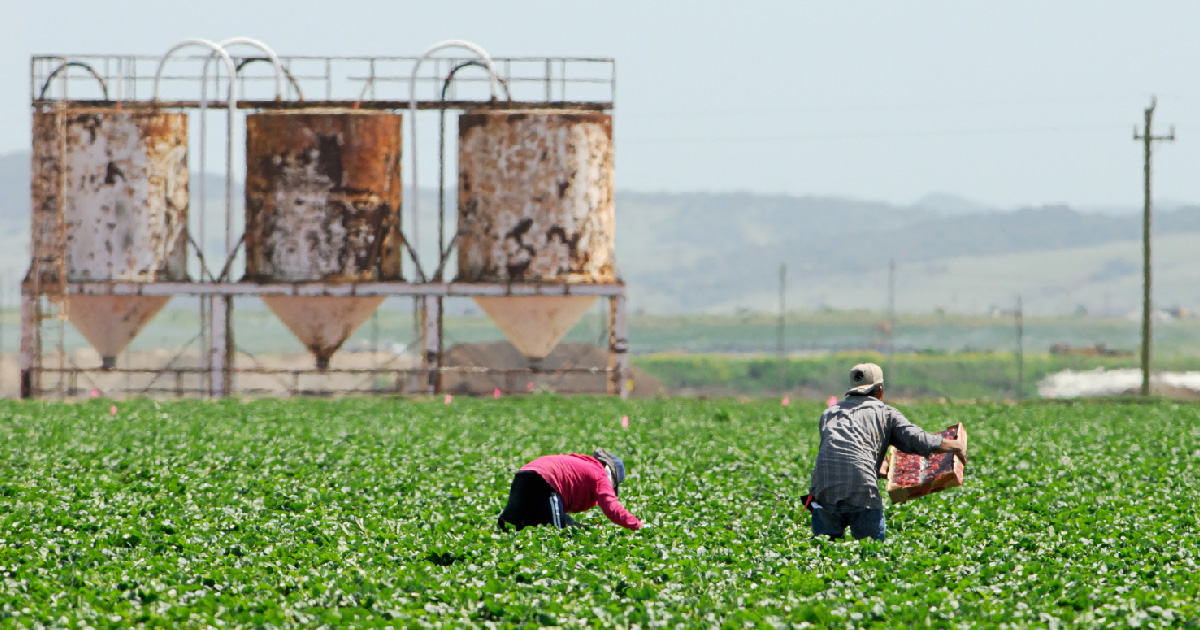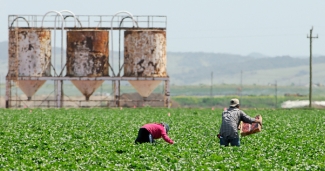Heat, Climate, Farmworkers, and Health: A Summer 2019 Update

July may be the hottest month ever recorded on the planet. The signature of the climate crisis is increased heat, particularly heat waves that are more frequent and longer in duration. Extreme heat like this year’s early-summer heat waves across the US and current record-breaking heat in Alaska endanger the health of farmworkers, who likely underreport their illnesses in an effort to keep their jobs. When paid by the pound rather than by the hour, as is common in farmworker situations, workers are motivated to keep working instead of pausing to a shade break or drink water. Farmworkers often live in substandard housing, leaving them unable to avoid the heat after work or at night, increasing their risk for heat-related illnesses. But the heat itself is not the only threat for farmworkers’ health.
Warmer weather is also altering ecosystems. In Delaware, Maryland, and Pennsylvania, a previously undetected triatomine insect known as the ‘kissing bug’ has arrived. The insect carries a parasite that causes Chagas disease, typically thought of as a subtropical or tropical disease, affecting people in Mexico, Central America, and South America. Infectious disease specialists are concerned about numerous diseases spreading into new corners of the US in the coming decades, including dengue, chikungunya, and Zika.
Hotter days dry out the topsoils, leading to an increase in dust. In California, the hotter weather has been linked to an increase in Valley Fever, which is contracted when the spores of a fungus are inhaled through airborne dirt particles. Farmworkers are particularly vulnerable as they work in fields where dusts are kicked up by weather and equipment.
With increased heat also comes drier timberland. In California, a new study shows that warmer weather is contributing to more acres burning. More land on fire means more smoke blowing into the valleys and urban areas, layering an additional occupational hazard for outdoor workers.
All of these issues are complicated further by farmworkers’ lack of access to health care, struggles with transportation and cost, lack of English proficiency or cultural differences, all of which may prevent a farmworker with a health concern from getting the care they need.
These health concerns are not fears for the future; clinicians in our network are serving farmworker patients today whose health is impacted by climate. Migrant Clinicians Network has signed on to the US Call to Action on Climate, Health, and Equity. This month, Migrant Clinicians Network also joined the Clinicians for Planetary Health initiative, because farmworker health justice is climate justice. Climate impacts every aspect of the work we do, from infectious diseases to refugee health to occupational illnesses -- and in our work with farmworkers as well. It is our duty as clinicians to publicly voice the current health effects of climate change on our patients and to call on local and national leaders to act on climate by reducing greenhouse gas emissions, transitioning immediately to renewable energy, and supporting environment-friendly legislation.
Learn more about the Clinicians for Planetary Health initiative including resources and ways for clinicians to get involved.
Attend the Planetary Health Alliance conference in September.
Read MCN’s Climate and Migration page.
Like what you see? Amplify our collective voice with a contribution.
Got some good news to share? Contact us on our social media pages above.
Return to the main blog page or sign up for blog updates here.
- Log in to post comments

